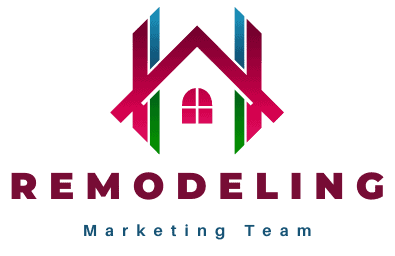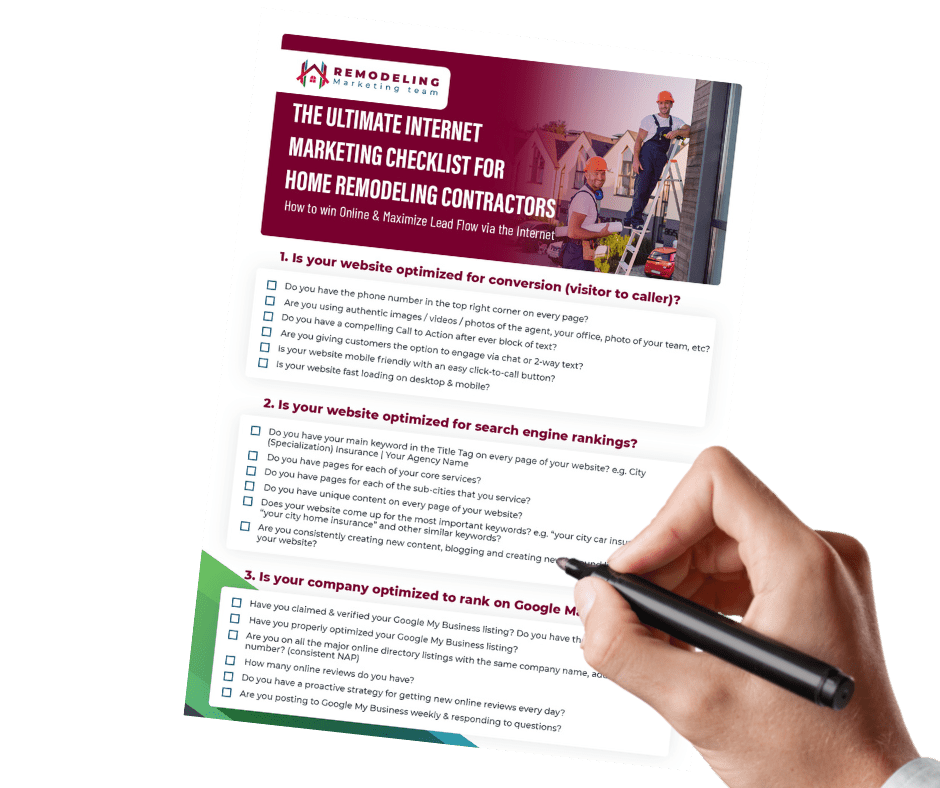Scaling a remodeling business demands a blend of strategic acumen and practical execution. This comprehensive guide offers a roadmap for business owners in the remodeling sector, detailing strategies for growth with actionable steps and integrated resources
1. Deepening Market Understanding
Understanding your market is pivotal for identifying opportunities and threats.
- Conduct Market Research: Utilize platforms like SurveyMonkey to gather customer feedback. Understanding customer preferences can help tailor your services to meet market demand.
- Identify Industry Trends: Use resources like NAHB reports to stay informed about industry shifts. This can guide you in adopting new technologies or methods ahead of competitors.
- Analyze Competitors: Tools like SEMrush can provide insights into competitors’ online strategies, helping you to identify gaps in your own strategy or areas for improvement.
- Attend Industry Events: Events like the NAHB International Builders’ Show offer opportunities to network, learn from peers, and keep abreast of emerging industry standards and technologies.
2. Enhanced Internet Marketing Strategies
A strong online presence is key to attracting and retaining a modern customer base.
- Optimize Your Website: Utilize SEO tools for better online visibility, ensuring your services are easily found by potential clients. A user-friendly website helps in retaining visitor interest and converting leads.
- Content Marketing: A blog can position you as an industry expert. Sharing success stories demonstrates your capability and builds trust with potential clients.
- Social Media Engagement: Platforms like Instagram are ideal for showcasing visual transformations in remodeling projects, directly engaging with your audience and building brand loyalty.
3. Diversifying Services
Expanding your service offerings can help tap into new markets and customer needs.
- Research New Services: Look into emerging demands in your area. This could include energy-efficient renovations or home automation, which are increasingly popular.
- Training and Certification: Ensuring your team is trained in these new services is crucial. This not only improves service quality but also boosts your team’s morale and competence.
4. Leveraging CRM in Customer Relationships
Effective CRM systems can significantly enhance customer satisfaction and retention.
- Implement a CRM System: Tools like Salesforce can help manage customer data, track interactions, and personalize marketing efforts, leading to enhanced customer experiences.
- Track Customer Interactions and Feedback: Collecting and analyzing feedback is essential for continuous improvement and can help in tailoring services to meet customer expectations.
5. Strategic Networking and Partnerships
Building relationships within the industry can lead to new opportunities and collaborative projects.
- Build Industry Contacts: Forming connections with local contractors and suppliers can lead to mutually beneficial partnerships and expanded service offerings.
- Join Local Business Groups: Active participation in local business groups can increase your visibility in the community and open doors to local projects.
6. Operational Efficiency and Tool Utilization
Efficiency in operations is vital to manage the complexities of a growing business.
- Adopt Project Management Software: Implement tools like Asana or Trello for better project management and tracking.
- Streamline Processes: Automation can reduce time spent on repetitive tasks, allowing your team to focus on more critical aspects of the business.
7. Investing in Team and Culture
A well-trained and motivated team is essential for delivering high-quality services.
- Encourage Professional Development: Continuous learning ensures your team is up-to-date with the latest industry practices, enhancing overall service quality.
- Foster a Positive Work Environment: A supportive work culture encourages team collaboration and innovation, which are crucial for business growth.
8. Financial Management for Growth
Sound financial planning and management underpin sustainable business expansion.
- Develop a Financial Plan: A clear financial roadmap helps in strategically allocating resources for growth initiatives while maintaining financial health.
- Explore Funding Options: Understanding different funding avenues enables you to make informed decisions on financing your growth, be it through loans or reinvesting profits.
9. Risk Management in Scaling
Anticipating and managing potential risks is crucial for a stable expansion.
- Conduct Risk Assessments: Regular risk assessments help in proactively identifying potential challenges, allowing for timely mitigation strategies.
- Develop Contingency Plans: Having backup plans in place ensures your business can withstand unforeseen setbacks and continue operating smoothly.
10. Measuring Success Through Key Metrics
Regularly tracking performance against key business metrics informs strategic decisions.
- Identify and Track Key Metrics: Metrics like customer satisfaction and project profitability provide insights into business performance and areas needing improvement.
- Adjust Strategies Based on Metrics: Regular analysis of these metrics can inform strategic adjustments, ensuring your business remains aligned with its growth objectives.
Conclusion
Scaling a remodeling business involves comprehensive planning, market insight, operational excellence, and a commitment to continuous improvement. By integrating these strategies with the right resources and tools, your business can navigate the path to sustainable growth and long-term success.
Attribution Statement:
This article is a collaboration between Carl Willis and OpenAI’s ChatGPT. Created on January 30, 2024, it combines AI-generated draft material with Willis’s expert revision and oversight, ensuring accuracy and relevance while addressing any AI limitations.






